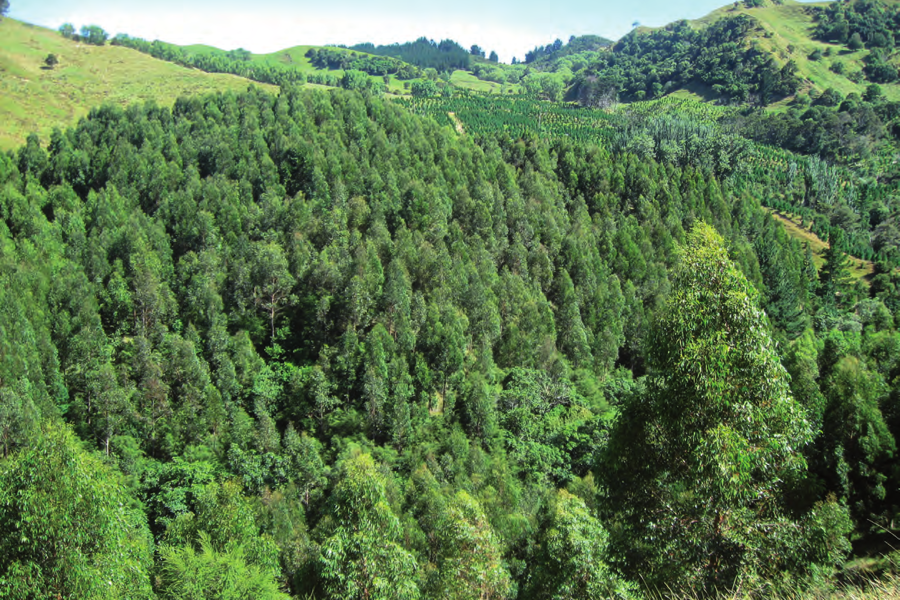A FAST-GROWING ALTERNATIVE TO Radiata Pine that produces durable timber which needs no chemical treatment? A regional hardwood industry based on this product? It’s not just a pipe dream. Since 2008, the New Zealand Drylands Forests Initiative (NZDFI) has been working towards its vision of developing sustainable regional hardwood industries based on Eucalypts which produce this highly durable timber.
The ultimate goal is to establish a multiregional hardwood products value chain with selected Eucalypts grown to produce (i) ground durable timbers predominantly for the agriculture and viticulture sectors and (ii) high stiffness veneers for structural engineered wood products such as laminated veneer lumber (LVL).
At the heart of this strategy is the production of improved planting stock of good genetic diversity. “Landowners need to know what species to plant where, how fast the trees are going to grow, what the timber will be worth, and also be confident that their trees are at low risk from pests and diseases,” says NZDFI Project Manager, Paul Millen.
Over $7.4 million has been invested in the NZDFI to date, with a robust breeding programme now producing the first generation of improved planting stock, and market potential proven for both solid wood and engineered wood products. The next step, says Paul, is to combine forces with those who can lead the uptake of durable Eucalypts in NZDFI’s target dryland eastern regions – particularly Gisborne-East Coast, Hawke’s Bay, Wairarapa, and Marlborough. These people include representatives of central government, regional government and industry organisations including wood processors; also farmers and forest growers and their advisers, Māori landowners and nurseries.
Humble beginnings
The genesis of the NZDFI goes back to 2003 when Paul and his brother Ash recognised an opportunity to provide naturally durable posts to the growing Marlborough viticulture industry. They began planting trials of a wide range of Eucalypt species with the help of Paul’s university colleague, Shaf van Ballekom, also the Managing Director of Proseed NZ, New Zealand’s major supplier of forestry tree seed. Proseed undertook seed collections in both New Zealand and Australia to provide the initial range of species identified as having the most potential on dryland sites.
Thanks to their university connections, Paul and Shaf were able to enlist University of Canterbury School of Forestry academic staff to design and undertake a multi-faceted tree improvement and forestry research programme, with wood quality as a key element moving beyond the usual focus on growth and form.
Dr Luis Apiolaza, the School’s lecturer in tree genetics who had worked on Eucalyptus breeding programmes in his native Chile, was keen to participate. Together they were able to rapidly design the NZDFI’s breeding programme and this is now on track to deliver the first improved nursery stocks of two species, Eucalyptus bosistoana and E. globoidea, in 2021. These will be sold under the ‘Xylogene’ brand, with the plan being to establish a certified chain of products under this brand in future.
The right tree in the right place “Land and forest-owners are increasingly looking...






